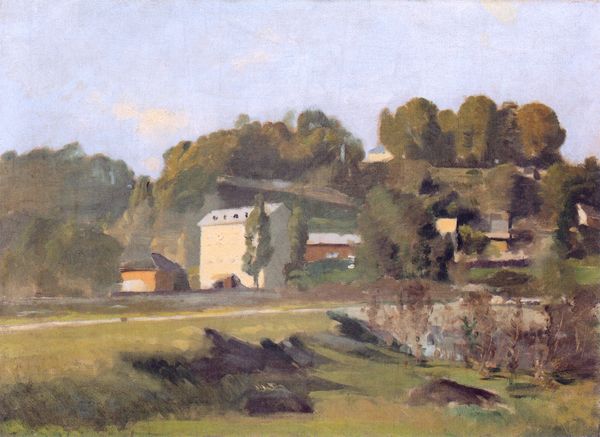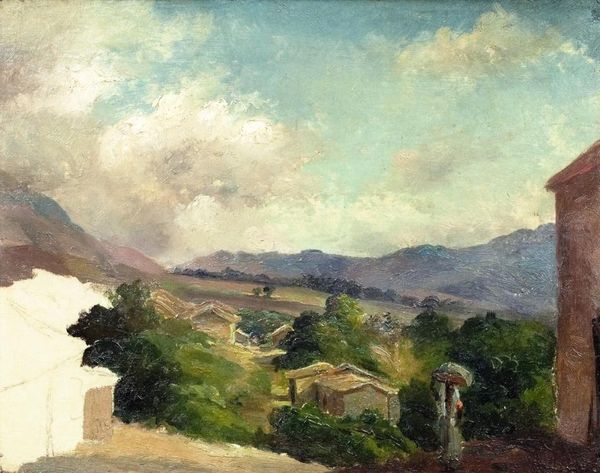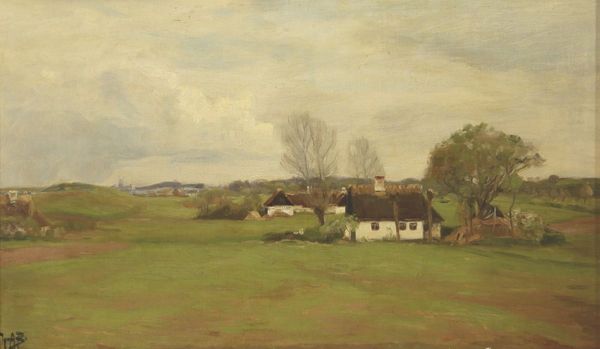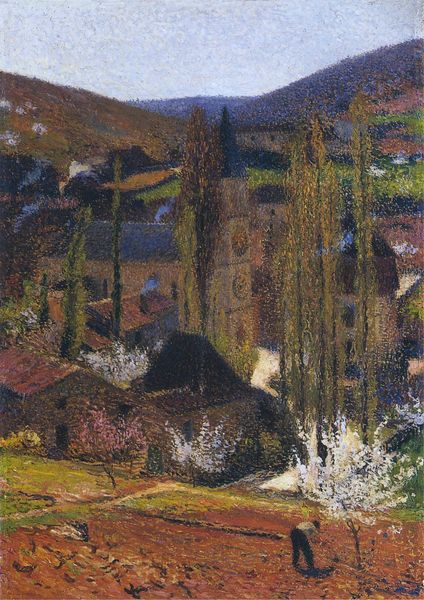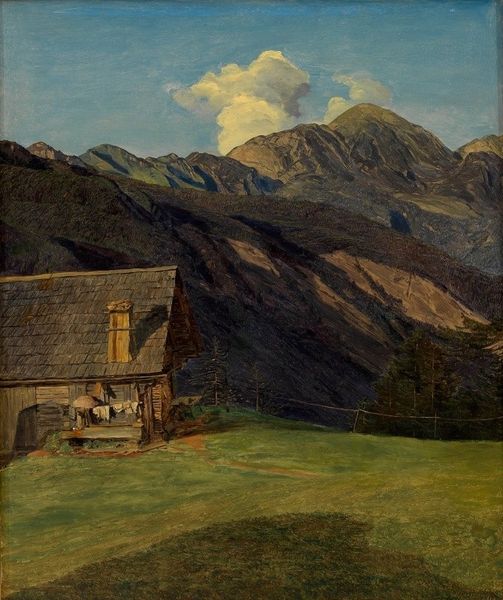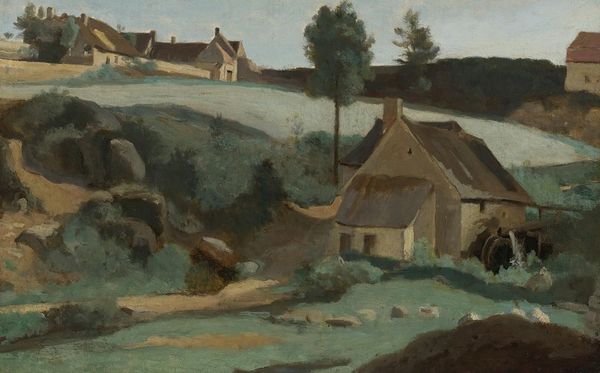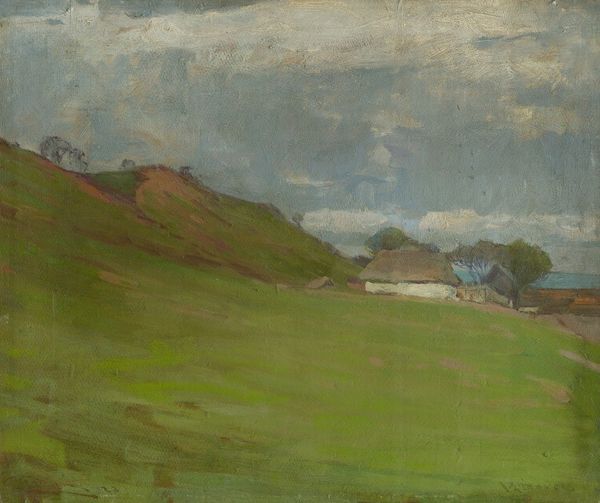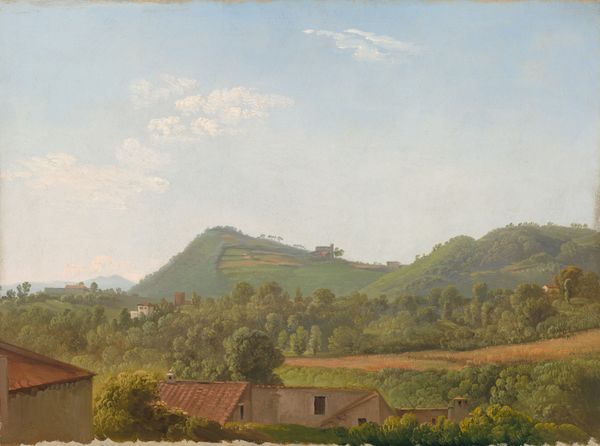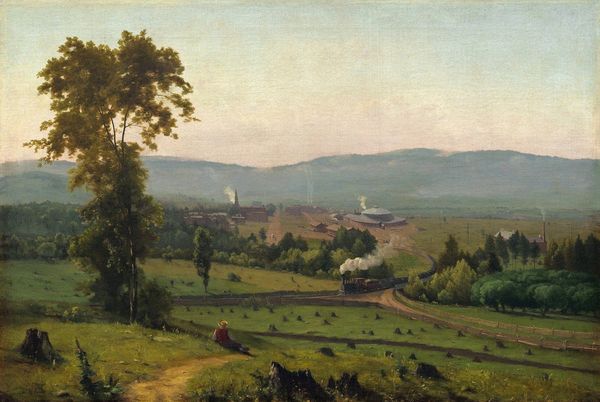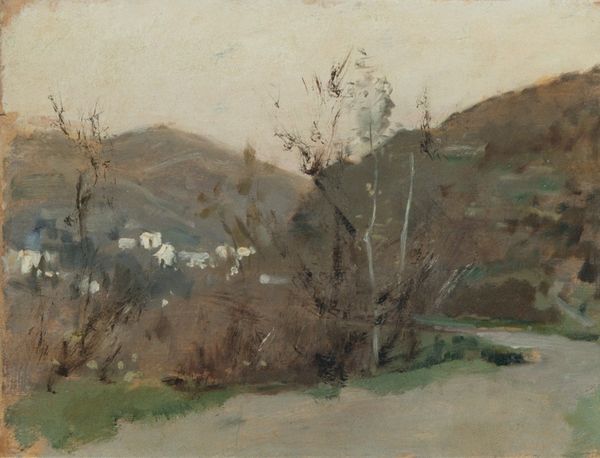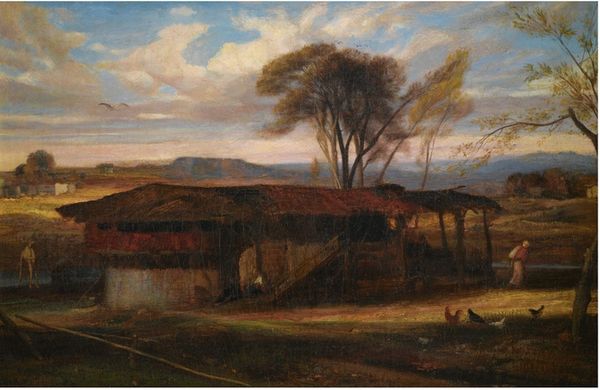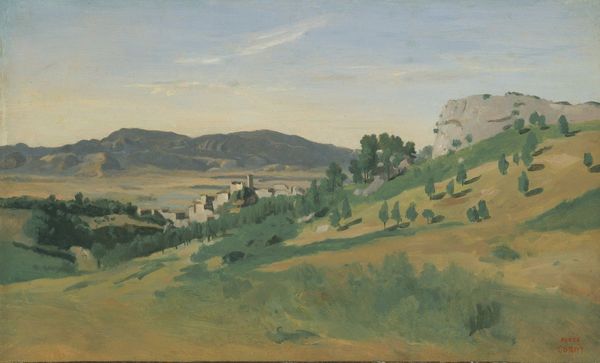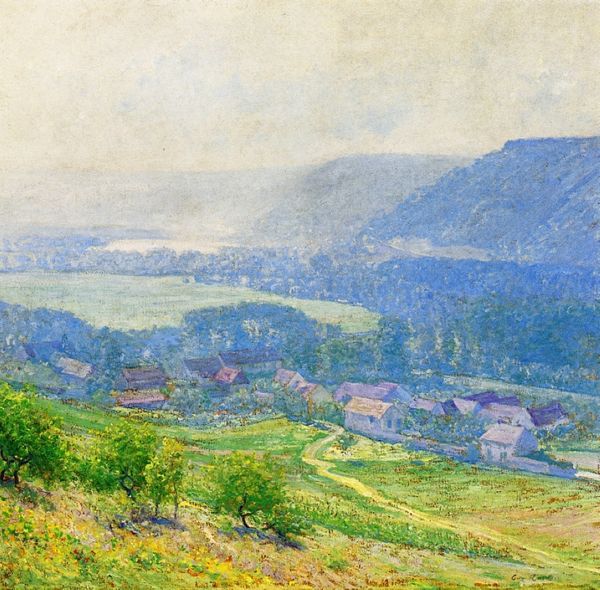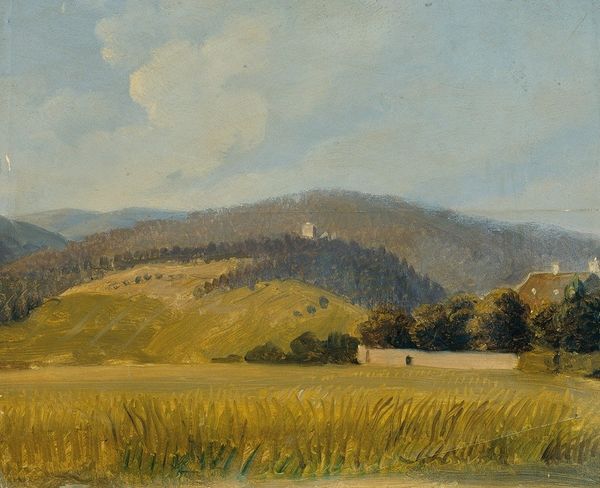
painting, plein-air, oil-paint
#
painting
#
plein-air
#
oil-paint
#
landscape
#
charcoal drawing
#
oil painting
#
romanticism
Copyright: Public domain
Curator: Before us, we have a captivating "Landscape Study," an oil painting attributed to Andreas Achenbach, a piece reflecting the plein-air approach gaining traction at the time. What strikes you initially about it? Editor: The quietude is remarkable. There's a sense of peacefulness here, almost as if time has slowed down. The muted tones contribute to this, creating an intimate scene. Is it intended to idealize this countryside? Curator: It’s possible. Landscapes in art have often served as powerful symbols. Note the layering, how the rolling hills descend into the settlement, hinting at an era when the natural world and humanity coexisted with a harmony we idealize now. Editor: I am struck by that tiny figure in the landscape and how that element might subtly reinforce the narrative of humanity's relationship with nature during the height of Romanticism—the delicate balance or even the encroachment. I would venture to say that this painting, while aesthetically pleasing, participates in that wider, complicated history. Curator: Yes! See how the painter employs these earthy colours to suggest not only a topographical reality, but perhaps also allude to themes of growth and rootedness, as intrinsic elements of the Romantic Movement's focus on Nature. Editor: Do you see that the Romantic ideals had a more troubling element, considering issues of land ownership, colonialism, and other exploitations enacted in the name of civilization? This depiction veils that violence, don't you agree? Curator: Certainly, and even through that reading it has a power as a reflection of longing. The way light filters through this simple, subtle vista feels archetypal in some ways, carrying traces of something old within the soul, which perhaps reminds the viewer of their origins. Editor: True. It allows space for considering nature's aesthetic worth, divorced from human contact. Curator: This work continues to pose thought-provoking queries concerning humans and our interactions. I hope that, from here, others may now look at this and consider these crucial questions about what constitutes identity. Editor: Exactly. Ultimately it is that exchange, between landscape, historical understanding, and aesthetic awareness, which creates new understanding of who we are as social beings, isn't it?
Comments
No comments
Be the first to comment and join the conversation on the ultimate creative platform.
